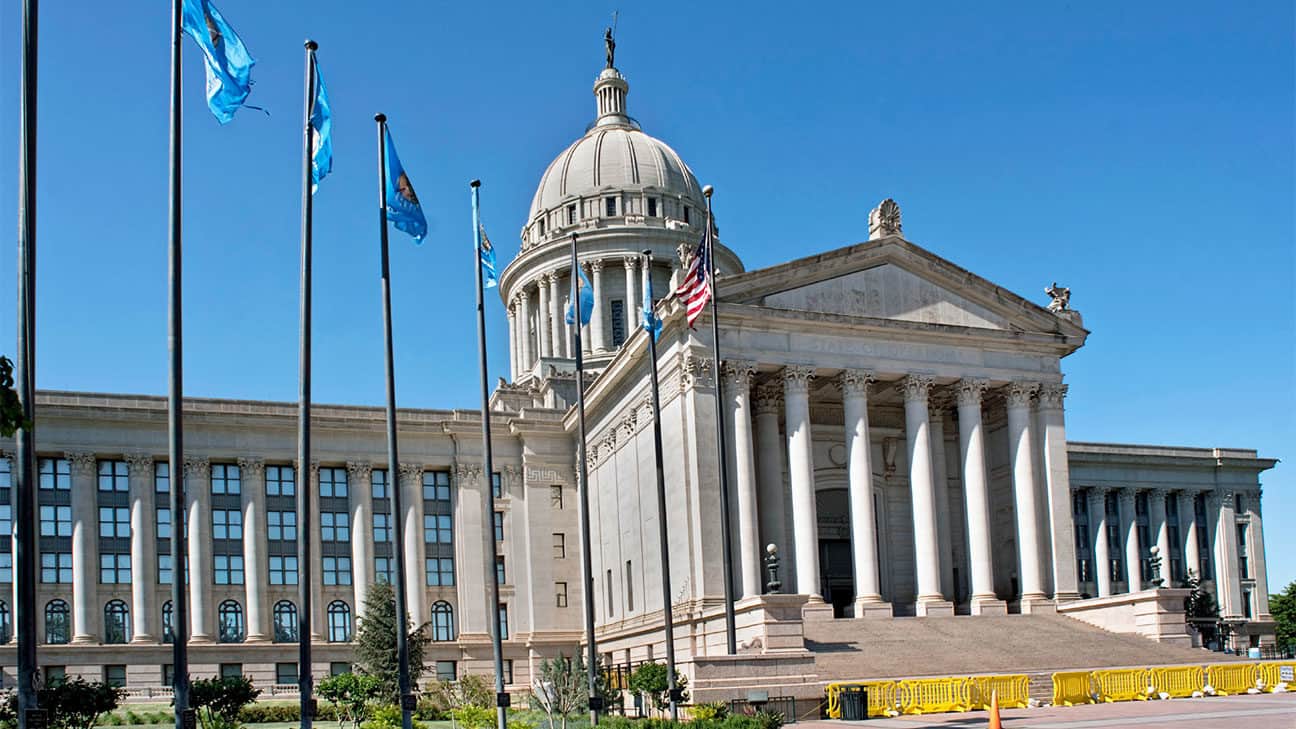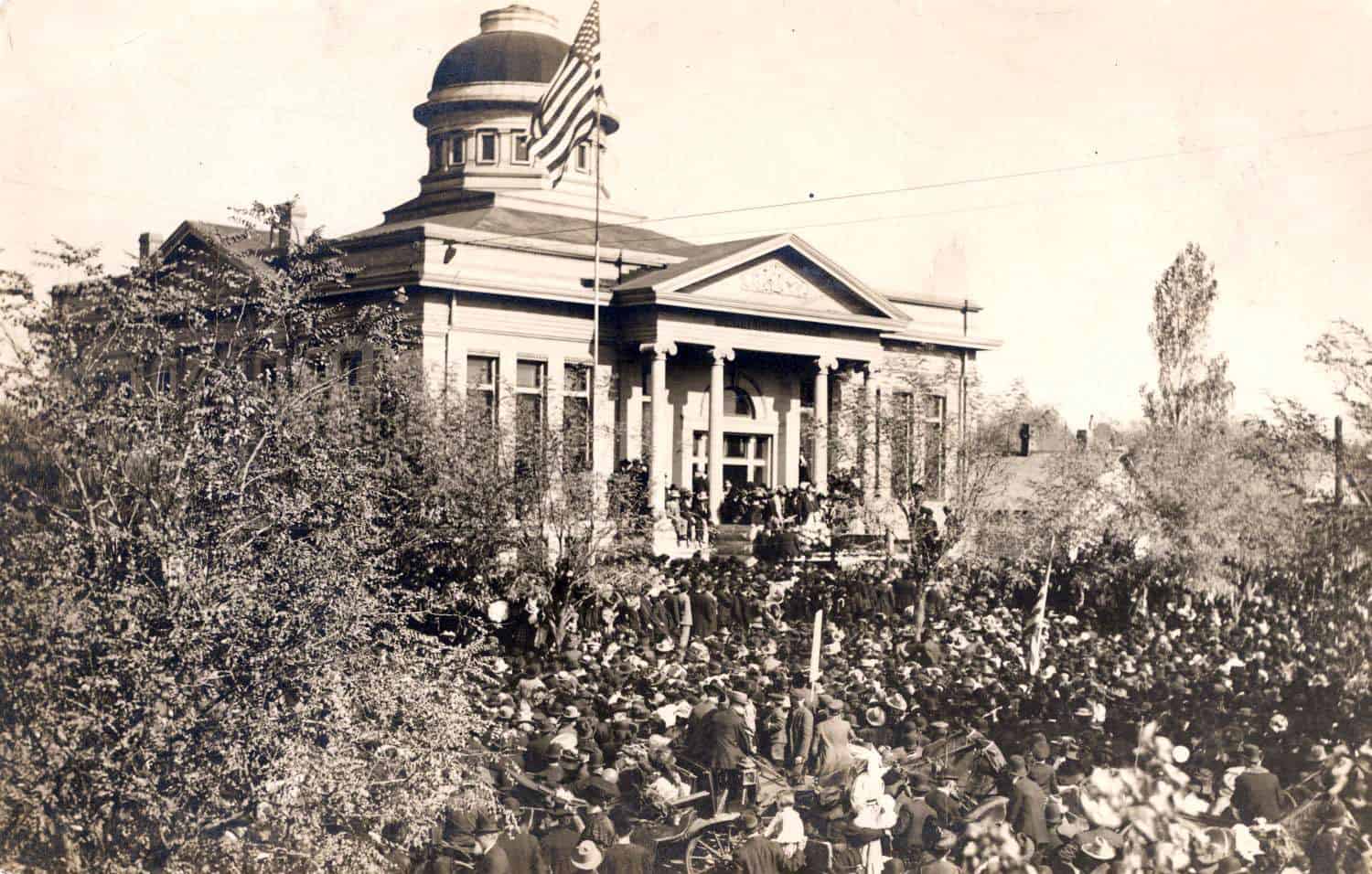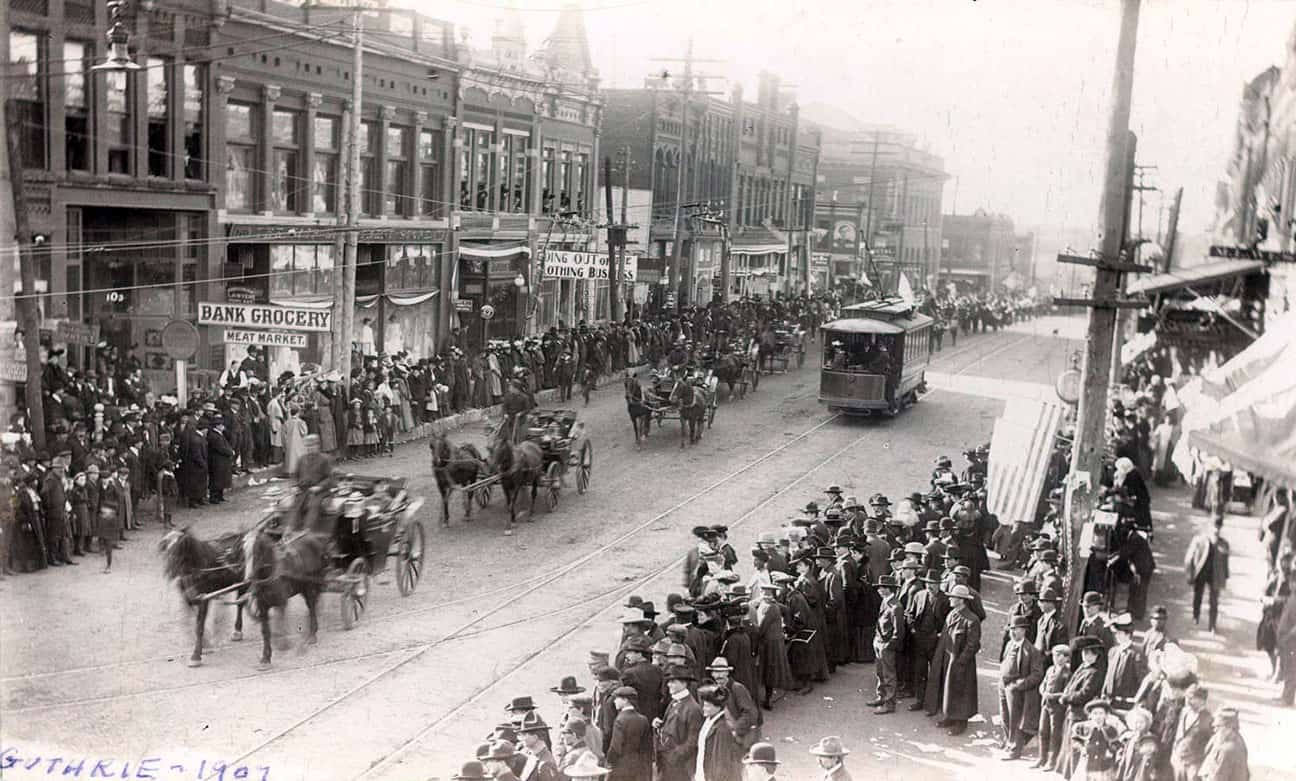
Historical Facts led to Supreme Court Ruling in McGirt Case
Published August 12, 2020DURANT, Okla. – Life for many members of the Muscogee (Creek) Nation is sure to change following a landmark decision by the United States Supreme Court on July 9. Its ruling in the case of McGirt v. Oklahoma — a historic win for American Indian rights at the Supreme Court—may also prompt changes in the role the state government plays in the lives of many Oklahomans.
With Associate Justice Neil Gorsuch authoring the majority opinion, the court finds that, for purposes of the Major Crimes Act, the state of Oklahoma has no jurisdiction over Muscogee (Creek) tribal citizens who commit major crimes within their tribal nation. Muscogee tribal courts or the U.S. District Court will now have jurisdiction.
In addition, the ruling affirms a lower court’s ruling in a separate but associated case, Carpenter v. Murphy, finding that the Muscogee (Creek) Nation is a reservation and has been one since at least 1866. Contrary to popular misconception, the Muscogee (Creek) reservation did not end with Oklahoma’s statehood in 1907.
What has changed for other tribes, including the Choctaw Nation, as a result of this landmark ruling? In a nutshell, everything—and nothing.
A Narrow Ruling
Justice Gorsuch, in authoring the court’s majority opinion, followed a conservative school of thought known as “textualism,” whose proponents believe judges should issue rulings based on precisely what the law says, regardless of how much time has passed since it was written, and without seeking to interpret it into present-day context. Gorsuch was nominated to the court by President Donald Trump in strong part due to his belief in textualism.
Gorsuch, the only Westerner on the court, clearly understood the importance of the ruling, which one national magazine calls the most important Supreme Court decision on Native rights ever. “On the far end of the Trail of Tears was a promise,” he wrote. “Today we are asked whether the land these treaties promised remains an Indian reservation for purposes of federal criminal law. Because Congress has not said otherwise, we hold the government to its word.”
Gorsuch’s ruling, many say, is classic textualism: he could find no evidence Congress disestablished the Muscogee (Creek) reservation in preparation for Oklahoma’s statehood, and he declined to act as though it had. Leery of upending longstanding constitutional arrangements, he and the court issued a narrow, focused opinion which, even so, manages to be one for the ages.
According to the majority’s opinion in McGirt, the ruling applies specifically to matters of criminal law, within the Muscogee (Creek) Nation only. It does not pertain to civil law anywhere, nor is it ostensibly about criminal law in any other tribe.
Examples of criminal law include crimes such as theft, assault, arson, trafficking in controlled substances, and murder. Civil law, by contrast, includes landlord/tenant disputes, divorce proceedings, child custody proceedings, property disputes, personal injury, etc. Much of what is often called “family law” is civil law.
The Supreme Court also took the opportunity, in releasing its ruling in McGirt v. Oklahoma, to affirm an earlier ruling by the Tenth U.S. Circuit Court of Appeals in Denver. The Denver court, whose jurisdiction includes Oklahoma, found in the case of Carpenter v. Murphy that the Muscogee (Creek) Nation was, and is, a reservation. While Carpenter v. Murphy represents a victory at the circuit court level, the Supreme Court’s action allowed the lower court’s ruling to take effect.
Tribal legal experts note that the Supreme Court’s ruling is rooted in the Muscogees’ Treaty of 1866 with the federal government—a treaty whose major provisions and language were included in similar treaties signed that year by other tribes, among them the Choctaw Nation. What applies to one may conceivably apply to all. But this is not automatically the case. In order for effects of the historic ruling to extend beyond the Muscogee (Creek) Nation, something will need to trigger its extension. Additional litigation could prompt such an event, as could congressional action.
Who Were Murphy and McGirt?
Neither case arose in pleasant circumstances. Patrick Murphy was convicted by the state of murder and received the death penalty in 2000. Murphy, a Muscogee Indian, later challenged the state’s authority, saying the murder occurred within the Muscogee (Creek) Nation, which he claimed still existed, meaning Oklahoma didn’t have jurisdiction over him. This was considered a novel legal defense, as most assumed the reservations had ended in 1907.
Murphy’s challenge rose to the U.S. Supreme Court during last year’s term, after the Tenth Circuit Court in Denver found in his favor, but it elected to issue no ruling, saying the case would be argued again this year. Court observers believe the justices, of whom there were then only eight, deadlocked 4-4. With the appointment of a ninth justice, the court tried again, but chose to set aside Carpenter v. Murphy in favor of McGirt v. Oklahoma—a case whose fate rested on an eventual ruling in Carpenter.
Jimcy McGirt, a member of the Seminole Nation, was tried and convicted by the state of performing sex crimes against an underage child in the Muscogee (Creek) Nation in 1996, and was given a life sentence. When the Tenth Circuit Court in Denver delivered its verdict on Murphy’s case in 2017, McGirt appealed his case to the U.S. Supreme Court, saying if the circuit court was correct in Murphy’s case, the state had no authority to try him, either, since his alleged crime took place in tribal territory. The Supreme Court heard McGirt’s case in May 2020.
Neither Murphy nor McGirt will be freed automatically as a result of the Supreme Court’s ruling. The U.S. Attorney is working on filing charges against them both.
How We Arrived at This Point
The crux of the ruling centers on the fact that Congress, in passing the Enabling Act of 1906 paving the way for Oklahoma to become a state, did not terminate the tribal governments or their domains. This is one of the most surprising developments of the case for many laymen. But context is key and goes far in explaining the failure by Washington to snuff out the tribal governments.
Congress and the federal government began their campaign to disestablish the Indian Territory and admit it as a state—either paired with the Oklahoma Territory or by itself—as early as 1893. During that time, it hammered out its policy toward the Five Civilized Tribes in sometimes disorderly leaps and bounds, centered variously around surveying and platting the Indian Territory; enrolling tribal members in final rolls; and negotiating agreements with the tribes for ending their governments. This took place across four presidential administrations—three Republican and one Democratic—and six successive Congresses.
Duplicity also clouded the picture. Tribal governments were not told of the federal government’s true intentions during negotiations to consider their future status. Secretary of the Interior Ethan Allan Hitchcock revealed only to Senator Henry L. Dawes, chairman of the Commission to the Five Civilized Tribes, that if the negotiations failed to achieve the government’s wishes to curtail tribal powers, the Indians’ wishes could be disregarded willfully. This led to a long and winding road.
One accident of history also complicated matters. The Indian Territory was unique in the history of the United States in that it had no central government, no capital city, and no territorial legislature. And, unlike every other territory, its reason for being was not to petition for American statehood. The opposite was true of the Oklahoma Territory, whose territorial governor and legislature sat at Guthrie, and whose citizens began petitioning for statehood as early as 1890.
In the end, the federal government appears to have stumbled by choosing not to eliminate the tribal governments in 1906, as it intended originally. Much tribal business was yet to be wound up, and it elected to continue the tribal governments so they might work to wrap up the final affairs of their peoples.
The government appears to have thought this would happen within a few years of statehood, but in the case of the Choctaws and Chickasaws, certainly, this never occurred. Federal government missteps meant the sale of the tribes’ lucrative tribal coal lands took decades to accomplish, and disputed royalty payments for timber remained unresolved for over 100 years. During this time the Choctaw tribe was governed by a presidentially appointed Chief, assisted by a National Attorney, a mining trustee, and an advisory council.
Choctaw Chief Gary Batton, in a televised address to the Nation on July 13, said, “The McGirt decision was a refreshing commitment to the actual law, upholding treaty obligations and rights, which have an unfortunate history of being ignored by both the federal government and the State of Oklahoma.” Justice Gorsuch, in the majority opinion, agreed, saying the government, having given its word, must keep it, because “the magnitude of a legal wrong is no reason to perpetuate it.”
The court was not unanimous in its finding. Its vote was 5-4, with the dissenting justices authoring a minority opinion in which they raise concerns about the precedent the case may create. It could, they fear, prompt other Indian tribes in Oklahoma to reclaim roles and responsibilities, which they worry may prove an expensive proposition. “It’s hard to know what to make of this self-defeating argument,” Gorsuch says. “Dire warnings are just that, and not a license for us to disregard the law,” he writes. “By suggesting that our interpretation of Acts of Congress adopted a century ago should be inflected based on the costs of enforcing them today, the dissent tips its hand.”
Oklahoma’s future is no longer clear and “we do not pretend to foretell” it, Gorsuch explains. “But it is unclear why pessimism should rule the day. With the passage of time, Oklahoma and its Tribes have proven they can work successfully together as partners.”
Photos

Oklahoma became a state on Nov. 16, 1907. In the ceremony, a mock wedding was held between "Mr. Oklahoma Territory" and "Miss Indian Territory." The ceremony was held at Guthrie, the capital of Oklahoma Territory.

For the Five Civilized Tribes, the ceremony at Guthrie marking Oklahoma's statehood on Nov. 16, 1907, and the inauguration of Gov. Charles N. Haskell which followed, were unhappy events. A new U.S. Supreme Court decision, however, finds the day was not what it seemed.
